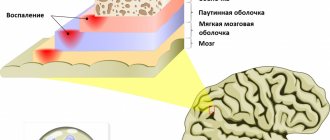Asthenia is a symptom of the underlying disease, but there is also a syndrome. There are several types depending on your cause, but in almost all cases the symptoms can be resolved if proper treatment is given.
A person who has asthenia may experience the following symptoms:
- lack of energy;
- fatigue;
- physical exhaustion;
- mental exhaustion;
- muscle weakness;
- impaired concentration;
- decreased vitality;
- sleep disorders.
Main causes of asthenia
The main causes of asthenia may be excessive care for loved ones, excessive attention to children and problems related, including work. According to statistics, people suffering from asthenia talk about physical and mental fatigue, and women are most susceptible to it.
Causes of asthenia
If you feel these symptoms, it is very likely that you have asthenia.
But what causes this tired feeling in your body? There are many possible causes that can be classified as functional or organic. Asthenia of organic origin.
This is a feeling of fatigue caused by other underlying diseases. In general, it appears at the end of the day and does not change for some time, there is always fatigue there.
Possible reasons may include:
- infections;
- anemia (decreased hemoglobin concentration in the blood);
- hypothyroidism (poor functioning of the thyroid gland);
- medications (benzodiazepines, antiallergic drugs, medications to lower blood pressure);
- pregnancy;
- neurological diseases such as multiple sclerosis;
- cardiovascular diseases;
- cancer;
- apnea syndrome;
- lupus;
- Addison's disease.
Asthenia of functional origin.
This may be due to excessive work, intense intellectual activity, insufficient rest, few hours of sleep, unhealthy habits (smoking, alcoholism, use of stimulants, etc.), studying for exams, competitive sports or any situation that causes intense and constant stress. In these cases, the recommended treatment in general is reducing work and increasing rest hours, eliminating harmful stimuli, defragmenting situations, and maintaining a healthy lifestyle.
In general, asthenia of functional origin appears in the early hours of the day and changes over time. This means that maybe after a few days you will feel good, and then on other days you will feel exhausted again, and so the cycle repeats. On the other hand, in some cases, asthenia of functional origin appears before the seasonal climate. In these cases, this is not relevant, since the fatigue is moderate and lasts a short time.
Other causes of asthenia.
Asthenia can also occur due to mental illnesses such as depression. If this is your case, then treatment with antidepressants or other psychotropic drugs may help eliminate asthenia.
Psychological therapy is also a good option for combating fatigue.
Asthenia in children
Asthenia in children is not very different in its symptoms from the manifestations of this disease in adults. There are only some age differences. Let's look at the methods and methods of treating asthenia in children.
The most important thing in treating asthenia in children is to provide them with regular exercise. Because due to constant fatigue, the child will lose any desire to participate in any sports activities or outdoor games with his peers. And the most important thing here is a strict balance between physical activity and rest. Physical exercise in children suffering from asthenia should be daily and regular.
Another important and significant part of the treatment of asthenia in children is a healthy and nutritious diet. Following a special diet rich in protein and vitamins will be a good basis for getting rid of this disease. The fact is that by including vegetables, fruits, lean meat, and fish in your child’s diet, you will help his body begin to produce energy, which is practically absent with asthenia.
Primary appointment with a neurologist: 1850 RUR.
Sign up Online 5% discount when registering from the site
How is asthenia diagnosed?
Your doctor will definitely ask you a lot of questions about your symptoms. To rule out an organic cause, you will need to do some blood and urine tests. If there are no organic reasons, then, of course, this is functional asthenia. The doctor will try to find out, based on the data you give him, what is the cause of your fatigue, and guide the treatment correctly.
Spring asthenia.
This is a special case of asthenia, which usually appears towards the end of winter or the beginning of spring. Symptoms are usually mild and short-lived, but it should be noted that this is not a psychiatric disorder. It's simply a feeling of tiredness that can be attributed to changes in hormones and neurotransmitters.
When a seasonal change occurs, temperatures and hours of sunlight increase. This causes changes in the functioning of the hypothalamus, the nerve center in the brain responsible for controlling sleep, wakefulness, appetite, thirst and body temperature. Changes in the functioning of the hypothalamus will be responsible for spring asthenia.
Why doesn't this affect all people?
Well, it may simply be due to a factor unique to each individual, a factor that has not yet been identified. Some people may be more sensitive or more likely to notice these climate changes.
This can be a situation similar to allergies: in the spring, many people suffer from asthma or rhinitis due to pollen in the air, while others have no effect on them. How to avoid spring asthenia.
Living a healthy lifestyle and eating a balanced diet are factors that can help you feel better and keep your body and mind energized.
Here are some basic tips to prevent spring asthenia:
- Be sure to include three daily servings of fresh vegetables and two servings of fruit in your diet.
- It is also important to eat moderate amounts of carbohydrates (pasta, rice, legumes, potatoes) and meat. Drink at least two liters of water daily. Have a good rest.
- Most people need seven or eight hours of sleep every day to function properly in their daily activities.
- Leave bad habits. Do not smoke, drink coffee, alcohol or other stimulant drinks late in the day.
- Do moderate exercise. Walking 20 or 30 minutes daily will make you feel more energetic.
- Go to bed and get up at the same time and don't skip meals.
- In some cases, taking vitamins and minerals may be necessary to combat asthenia, but this should always be prescribed by a doctor. However, keep in mind that excess vitamin intake can have very negative consequences.
Treatment of asthenic condition
Therapeutic measures for asthenia are aimed at eliminating the cause and restoring the impaired functioning of the nervous system. The main methods of treating asthenic syndrome:
- Isolation from external stimuli.
- Pharmacotherapy: neurometabolic therapy, restorative treatment, B vitamins.
- Psychotherapy: relaxation techniques, art therapy, cognitive psychotherapy, etc.
- Physiotherapy: electro-sleep, electro-analgesia.
- Diet therapy, fasting-diet therapy.
- Massage and physical therapy.
Any doctor should identify asthenic syndrome and provide assistance. But specialized help for this condition is provided by a psychotherapist, psychiatrist, and neurologist.
A healthy lifestyle and timely medical examination are the key to maintaining mental health. See more details here.
For questions and assistance with asthenia, please contact us.
Chronic asthenia syndrome.
Chronic asthenia can be defined as a feeling of fatigue that is constant, has an evolution of more than six months and leads to a significant decrease in efficiency of up to 50%. In such cases, consultation with a doctor is necessary.
Although in many cases an organic or psychological cause for chronic asthenia can be found, in a large percentage of patients a specific cause cannot be determined.
The most common symptoms of chronic asthenia are:
- Feeling very tired.
- Headache.
- Sleep disorders.
- Muscle pain.
- In some cases, fever. They look like flu symptoms, only they are long-lasting and are not relieved by bed rest.
When a cause cannot be determined, doctors believe that symptoms may be caused by changes in the immune system or muscle cell function, but these are actually theories that have not yet been proven.
Most cases of chronic asthenia appear in previously healthy people between the ages of 20 and 50, and more often affect women than men.
What does it mean that chronic asthenia has an irregular evolution?
In about half of patients, symptoms disappear after several months of treatment, while others suffer relapses. In these cases, symptoms come and go, worsening when you experience physical or psychological stress.
Sometimes the feeling of fatigue and weakness is so great that it interferes with daily activities, and this can cause anxiety and depression.
Imagine that for several months you feel extremely tired, your muscles and headaches hurt, and after a long period of rest the symptoms reappear. Anyone will feel depressed in this situation.
Asthenia scale
The asthenic state scale was developed by L.D. Maykova, adapted by T.G. Chertovaya on the basis of clinical and psychological observations and the well-known MMPI questionnaire (Minnesota Multidimensional Personality Inventory).
The scale consists of 30 items of statements reflecting the characteristics of asthenic syndrome. The study is carried out individually in a separate, well-lit room, isolated from extraneous sounds.
Instructions for the test: Read each sentence carefully and evaluate it in relation to your current state.
Points for each answer are awarded according to the following scheme:
- No, not true – 1;
- Perhaps so – 2;
- True – 3;
- Absolutely right - 4.
Test material:
- I work under a lot of pressure;
- I find it difficult to concentrate on anything;
- My sex life does not satisfy me;
- The waiting makes me nervous;
- I am experiencing muscle weakness;
- I don't feel like going to the cinema or theater;
- I'm forgetful;
- I feel tired;
- My eyes get tired when reading for a long time;
- My hands are shaking;
- I have poor appetite;
- It is difficult for me to be at a party or in a noisy company;
- I don't understand what I read so well anymore;
- My hands and feet are cold;
- I am easily offended;
- I have a headache;
- I wake up in the morning tired, not rested;
- I get dizzy;
- I have muscle twitching;
- I have a buzzing in my ears;
- I am worried about sexual issues;
- I feel heaviness in my head;
- I experience general weakness;
- I experience pain in the crown of my head;
- Life for me is about tension;
- My head seems to be tied together with a hoop;
- I wake up easily from noise;
- People bore me;
- When I worry, I break out in sweat;
- Restless thoughts keep me awake.
The possible number of points ranges from: 30 -120
The test results can be interpreted as follows:
- From 30 to 50 points – “absence of asthenia”;
- From 51 to 75 points – “weak asthenia”;
- From 76 to 100 points – “moderate asthenia”;
- From 101 to 120 points – “severe asthenia”
Differential diagnosis.
Some diseases can cause chronic asthenia and need to be ruled out before a definitive diagnosis can be made.
Diseases such as hypothyroidism, diabetes, anemia and some mental disorders are some examples of diseases that need to be investigated in a patient when he has chronic asthenia.
People with fibromyalgia, for example, like those with chronic asthenia, may experience muscle pain, extreme fatigue and sleep disturbances. On the other hand, fatigue and muscle pain often appear early in various inherited muscle disorders, as well as in various metabolic, autoimmune and endocrine conditions.
Reviews
Reading reviews to get an idea about a service has become dubious these days. Many reviews are faked, ordered by unscrupulous clinics from special agencies. Therefore, you never know whether the review you read is true or fake.
We propose a different approach. At Dr. Isaev’s clinic, meetings are regularly held at which former patients or their relatives are present. By talking with a person who knows first-hand about our treatment methods and conditions for keeping patients, you can get the necessary information and form your own impression of the treatment of asthenia in our medical institution.
What to do if asthenia occurs?
First of all, it is necessary to exclude all external stimuli. In most cases, this is the most effective method of eliminating asthenic manifestations
.
If asthenia is a manifestation of a pathological process in the body, then additional consultation with a doctor will be required to detect abnormalities in the body, conduct diagnostics, obtain reliable data on the state of health and prescribe the necessary treatment.
asthenic syndrome signs
Functional asthenia: possibilities of correction using vitamin-mineral complexes
The complaint of increased fatigue is one of the most common in general therapeutic and neurological appointments. Moreover, young, socially active and working patients are increasingly beginning to present with such complaints. Increased fatigue is one of the symptoms of asthenic syndrome. Asthenia is not a specific condition and therefore has a very wide prevalence in the population - 10–45% [1]. It must be said that fatigue requires medical intervention only if it goes beyond the boundaries of physiological fatigue typical of any person. Normally, after a period that requires the mobilization of physical, mental and mental strength, a feeling of fatigue occurs. However, this physiological state quickly passes after rest. Within the framework of asthenic syndrome, fatigue loses a clear connection with periods of physical and psycho-emotional stress, becomes constant and does not go away after rest. In this case, we can talk about pathological fatigue. The mechanism of occurrence of this phenomenon is explained by a violation of the regulatory functions of the limbic system and the reticular formation of the brain stem, which provide the level of attention, wakefulness, adaptation to changing external conditions, and regulation of autonomic functions. On the other hand, there is dysfunction of the main neurohormonal system involved in the implementation of effects in response to stress, namely the hypothalamus-pituitary-adrenal axis [2]. As a result, in addition to increased fatigue, a person experiences unproductive intellectual activity: inability to concentrate on a subject, unstable attention, forgetfulness, slow decision-making speed, difficulties in assimilation of new information. Errors appear when performing complex activities, and general ineffectiveness of thinking. Short rest and breaks from work do not improve the condition. In young working patients, this often leads to a feeling of intellectual failure and the conclusion that the work is too difficult and overwhelming. Other manifestations of asthenic syndrome are a feeling of weakness, fatigue and emotional lability. Mental imbalance, irritability, short temper, mood swings with the appearance of pessimistic thoughts and depression with tearfulness occur. Hyperesthesia to various stimuli is often detected. Sleep ceases to bring a feeling of rest and may become superficial with difficulty falling asleep and early awakenings. In addition, with asthenic syndrome, autonomic disorders can also occur, most often from the cardiovascular system and gastrointestinal tract, as well as impaired libido in women and potency in men. There is no doubt that patients with certain constitutional characteristics, which manifest themselves as a tendency to asthenic response, are most susceptible to the development of asthenic syndrome.
What should be the approach to such a patient?
1. Eliminate organic (somatogenic) asthenia. It is known that asthenia in 45% of cases develops against the background of chronic diseases. Among neurological pathologies, asthenia most often occurs in traumatic brain injuries, vascular, demyelinating and degenerative diseases of the brain. Mental illnesses with manifestations of asthenia can be represented by schizophrenia, but it can also be a pathology associated with the abuse of alcohol and psychoactive drugs, which must be asked about at the initial appointment. Often asthenia is a manifestation of cardiovascular, infectious, hematological, oncological diseases, gastrointestinal diseases, as well as endocrine pathology. Among the latter, the most important are dysfunction of the thyroid gland and diabetes mellitus, the first manifestation of which may be increased fatigue. Thus, it is necessary to assess 3 main areas of the patient’s condition: neurological, mental and somatic. Often, conclusions can be drawn by collecting a high-quality anamnesis and accurately identifying all complaints in combination with an assessment of the somatic, neurological and mental status. This allows you to compare subjective complaints and objective symptoms. If you suspect another pathological condition underlying asthenia, it is recommended to refer the patient to an appropriate specialist for targeted diagnosis. This will allow, in addition to prescribing anti-asthenic drugs, appropriate treatment of the underlying disease, which usually leads to a significant weakening of the symptoms of asthenia.
2. Rule out chronic fatigue syndrome. If complaints of constant weakness persist for at least 6 months. and in the absence of an underlying infectious, somatic or mental illness, it is necessary to exclude chronic fatigue syndrome, probably associated with immune changes in the body (in foreign literature - chronic fatigue syndrome). This is explained by the fact that the key neurohormonal system (hypothalamic-pituitary-adrenal) responds to stress not only through hormonal, but also through immune reactions. Some studies have revealed an association of chronic fatigue syndrome with an increase in the level of pro-inflammatory cytokines [3] and activation of cytotoxic T-lymphocytes [4]. According to the criteria, to diagnose this condition (in addition to time limits and excluding concomitant diseases), the clinical picture must contain 4 of 8 signs [5]: – impaired memory and concentration; – sore throat (pharyngitis); – pain on palpation of the cervical or axillary lymph nodes; – muscle soreness or stiffness; – joint pain (without redness or swelling); – new headache or change in its characteristics (type, severity); – sleep that does not bring a feeling of restoration (freshness, vigor); – worsening fatigue after physical or mental effort, lasting more than 24 hours. Identifying signs of chronic fatigue syndrome involves studying the patient’s immune status and, if necessary, its correction.
3. Rule out depressive and anxiety disorders. If we look at the criteria for diagnosing depression and generalized anxiety disorder, we can see that the manifestations of the asthenic symptom complex are included in their structure. According to DSM-IV criteria [6], a diagnosis of major depression requires the presence of depressed mood and/or anhedonia for at least 2 weeks. in combination with ≥5 of the following criteria causing significant distress or impairment of daily activities: – depressed mood, dysphoria; – anhedonia (decreased ability to experience pleasure); – sleep disorders (insomnia or hypersomnia); – anorexia or increased appetite; – decreased performance; – guilt, low self-esteem; – increased fatigue or lack of energy; – psychomotor retardation; – suicidal thoughts, thoughts about death. The DSM-IV criteria for generalized anxiety disorder are the presence of anxiety and restlessness in combination with at least 3 of the following symptoms: - impatience or feeling on edge; – increased fatigue; – difficulty concentrating or feeling empty in the head; – irritability; – muscle tension; – sleep disorders. The duration of the disease must be at least 6 months, the symptoms must cause significant distress or affect social, professional and other areas of activity. Thus, it is not always possible to draw a clear line between asthenic and anxiety-depressive syndromes. If the patient's condition meets the criteria for depression or anxiety, then the treatment regimen should include antidepressants and anxiolytic drugs.
4. Rule out sleep disturbances that are primary in relation to asthenic syndrome. For 22% of the population, sleep disturbance is a clinically significant problem, despite having adequate time and conditions for sleep. Insomnia in them becomes persistent and manifests itself as a violation of daytime functioning in the form of decreased attention, mood, daytime sleepiness, autonomic symptoms, etc., which resembles the classic symptoms of asthenia. Diagnosis of a sleep disorder and identification of its causes (for example, sleep apnea syndrome, restless legs syndrome, periodic limb movement syndrome in sleep) serve as the basis for appropriate therapy, allowing the reduction of “daytime” symptoms [7].
5. Confirm the presence of functional (reactive) asthenia. This type of asthenia occurs in initially healthy individuals under the influence of time-limited psychophysiological or physical factors and is a reversible condition. Reactive asthenia appears after infections, operations and injuries, can occur during pregnancy and the postpartum period, and can also be seasonal due to vitamin deficiency. It may also be associated with the use of certain medications: sleeping pills, tranquilizers, antipsychotics, antihistamines, beta-blockers, antihypertensive drugs with a central mechanism of action. However, the greatest contribution to the formation of functional asthenia syndrome is made by the nature of the patient’s life activities. These are psychophysiological factors associated with emotional stress and insufficiency of adaptation mechanisms, for example, the period of exams or competitions, the work of an air traffic controller, simultaneous interpreter. Currently, the number of patients complaining of fatigue has increased due to office workers. This problem has become particularly acute during the financial crisis, when employees have to take on the workload of laid-off colleagues. Stressful factors can be salary if it does not correspond to self-esteem, constant “paper” work, conflicts with clients, difficult relationships with the manager, performing work below or above one’s qualifications, unclear role responsibilities and conflicting requirements of the manager, which lead to additional workload, high workload during the working day, when a person is forced to perform several tasks in parallel, an increased amount of work in a short time, irregular working hours, the need to take work home and work on weekends, tense relationships in the team, unhealthy competition. Also, the increased flow of incoming information in the form of emails, messages, phone calls, instructions from managers interrupts the work process; additional efforts are required to enter it again. Thus, work is often performed under conditions of psychological discomfort and increased mental stress. A sedentary lifestyle, a forced position at the computer, and strain on the visual analyzer also contribute to increased fatigue. The level of stress among metropolitan residents increases due to a long stay on the road and the likelihood of being late. As a result, a person experiences decreased productivity, poor concentration, memory loss, mental fatigue, irritability, mood swings, and sleep disturbances, which negatively affects work efficiency. This is precisely what explains why in modern industrial society the number of working people with manifestations of asthenic syndrome continues to grow.
Possibilities for correcting reactive asthenia using vitamin-mineral complexes
With reactive asthenia, it is important to explain to the patient the cause of his complaints and recommendations for eliminating at least some trigger factors. They may concern the alternation of work and rest, improving the ergonomics of the workplace, normalizing night sleep, mastering time management skills and personal efficiency. One of the important elements of the treatment of asthenic syndrome is dosed physical activity. Drug therapy for functional asthenia is not specific. It is aimed at improving the patient’s adaptation to environmental conditions. Therefore, it is justified to prescribe drugs that improve brain metabolism and energy processes, stimulate general metabolism, and have antioxidant properties. Traditionally, nootropics and neurometabolic drugs with a psychostimulating effect continue to be used to treat asthenia. However, in recent years, vitamin-mineral complexes (VMCs) have become an addition to these groups of drugs, which has a logical justification for asthenic syndrome. They are represented by a wide range of drugs, the pharmacological effect of which is determined by the complex of vitamins and microelements included in the composition - the need for them increases with increased stress (physical, mental), as well as with unbalanced and inadequate nutrition. Among the drugs in this group, Berocca Plus should be highlighted. This is a combined preparation containing B vitamins (B1, B2, B6, B12, B3, B5), folic acid, biotin, vitamin C, as well as calcium, magnesium and zinc. The combination of these vitamins and minerals has proven effective in treating asthenic syndrome. Most often, the positive effect on cognitive processes is explained by the involvement of vitamins B, C, folic acid and minerals in important cellular processes. For example, folic acid and vitamins B12 and B6 play a specific role in the processes of DNA methylation and decarboxylation, regulating its integrity, as well as in the synthesis of DNA, proteins, and phospholipids [8, 9]. There is evidence that the production of catecholamines and other monoamines is stimulated by increasing the level of B vitamins in the body [8, 10]. B vitamins are involved in folate metabolism, and folate levels correlate with mood levels and cognitive function [11]. There is evidence that B vitamins have neuroprotective properties and play a key role in the remethylation, metabolism and reduction of the potentially toxic amino acid homocysteine, elevated levels of which contribute to the development of neurodegenerative and psychiatric diseases through negative effects on cellular, vascular and oxidative processes [9 ]. Vitamin C is one of the most abundant antioxidants in the brain. Its ability to be an electron donor makes this vitamin a major cofactor in processes such as cell maturation, neuroprotection, as well as cholinergic, GABAergic, dopaminergic and glutamatergic neurotransmission [12]. Minerals, including zinc, magnesium and calcium, are also essential for normal brain function. The transmission of nerve impulses directly depends on calcium [13]. In addition, it is a universal messenger of intercellular signals in different tissues [14]. Magnesium plays an important role in various metabolic reactions [15] and is involved in processes that require large amounts of energy [16]. Zinc is one of the main elements for the construction and functioning of proteins and is found in high concentrations in the synaptic vesicles of one of the subtypes of glutamatergic neurons, which are most concentrated in the forebrain [17]. Neuropsychological impairment has been shown to be associated with zinc deficiency [18]. These minerals are involved in the processes of myelination, synthesis of neurotransmitters and modulation of the activity of the dopaminergic and adenosinergic neurotransmitter systems [13, 19, 20]. Thus, optimal functioning of the central nervous system depends on a wide range of substances.
To date, the influence of micronutrients on cognitive and mental processes throughout a person’s life is considered a proven fact. Insufficient vitamin intake may lead to deterioration of some aspects of cognitive function and mood [21–28]. There are studies that have shown that a deficiency of water-soluble vitamins is manifested by fatigue, tiredness, anxiety, irritability, sleep and memory disturbances, and decreased ability to concentrate [29, 30]. Levels of one or more B vitamins and/or homocysteine have also been shown to be associated with depression [31–34] and cognition [35–41]. A number of epidemiological studies in older adults have found an association between the preservation of cognitive function or the development of dementia and vitamin C intake [42, 43].
In recent years, there has been increased interest in studying the possible modulatory effect of multivitamins on mood and cognitive processes [44, 45]. In cases of severe deficiency, an improvement in cognitive function was noted when taking multivitamins [23]. More recent work has shown that even in the absence of vitamin deficiency, such supplementation can improve mood, cognition, and performance. In particular, the administration of a multivitamin complex in the 8-week DASS study was accompanied by a decrease in scores on scales of depression, anxiety and stress [45], in a 90-day study - a decrease in stress associated with work activities [46], and in a 9-week study - improvement of the background mood decreased in response to an acute stress factor [47]. As for longer-term studies, it was shown that taking high doses of IUDs by healthy volunteers for 12 months. was accompanied by subjective improvements in mood according to the Profile of Mood States scale, mental health according to the General Health Questionnaire, and attention tests. However, this result was demonstrated only in women [48, 49]. In addition, taking B vitamins (folate, B6, B12) had a positive effect on cognitive processes such as information processing, reproduction and speech activity in healthy women of various ages [50]. A large 2007 study showed that folic acid supplementation for 3 years in 818 patients aged 50–70 years with high homocysteine levels led not only to a decrease in homocysteine levels, but also to improvements in memory, information processing, and sensory perception. motor speed [51]. This served as the basis for conducting, as yet, a small number of small studies of the administration of vitamins B (B6, B9, B12) and C to patients with cognitive decline and dementia, which requires continued work in this area [52, 53].
A number of works were devoted directly to the study of the drug Berocca, which contains a selected combination of vitamins B, C and minerals. In a 2000 study, Berocca's multivitamin and mineral complex was administered to 300 healthy volunteers for 4 weeks. As a result, improvements were noted in indicators such as feelings of stress, anxiety and psychological well-being [54]. Similar results were also obtained in the study by D. Carroll et al. (2000): after a 4-week prescription of the multivitamin and mineral drug Berocca to 80 healthy men, a decrease in subjective perception of stress on the Perceived Stress Scale and anxiety on the Hospital Anxiety and Depression Scale was noted [55]. Another recent (2010) large study of Berocca was a randomized, double-blind, placebo-controlled, parallel group study of its effects on cognition and mood in 215 men aged 30 to 55 years and employed full-time. The drug was prescribed for 33 days. The design of the study was interesting - in addition to the simple use of scales before and after treatment, a technique was used to induce fatigue through intense mental stress using a special test and physical activity. This mental fatigue provides a good background against which the cognitive effects can be seen more clearly. The results showed that the active treatment group showed improvements in stress (PSS), mental health (GHQ-12) and internal energy (POMS). Compared to the placebo group, there was better performance on cognitive tests of executive function after intense mental stress. In addition, the patients themselves who received the Berocca multivitamin and mineral preparation also subjectively noted less mental fatigue after a special cognitive load [10].
At the same time, a number of other works were devoted to studying not long-term use of multivitamins, but their immediate effect on the emotional, affective and cognitive spheres. For example, 3 hours after taking multivitamins, children showed an improvement in attention function [56]. An immediate neurocognitive effect was also shown in a study with the multivitamin and mineral drug Berocca. At the same time, to assess the effect of the drug on brain function, cognitive processes were studied simultaneously with neuronal activity using the method of functional MRI (f-MRI), which is carried out immediately at the time of performing cognitive tests. In a double-blind, placebo-controlled study of the combined Berocca IUD in young healthy subjects (aged 21–39 years), it was shown that immediately after taking the drug, when performing a cognitive load with the presentation of visual stimuli, there was not only an improvement in the performance of these tests, but also an increase in activity right precentral gyrus and cerebellum according to f-MRI compared with this indicator in the placebo group [57]. Earlier studies have shown that the right precentral gyrus is involved in inhibitory reactions necessary for cognitive processes [58]. As for the cerebellum, in addition to motor function, it has been proven to play a key role in various cognitive processes, such as attention, executive control and working memory [59, 60]. This provides neurophysiological evidence that the multivitamins and minerals contained in Berocca may improve neurocognitive processes. Berocca Plus is available in the form of film-coated tablets or soluble effervescent tablets. The recommended daily dose is 1 tablet, and the recommended duration of treatment is 30 days.
Thus, studies have shown that the use of IUDs can have positive effects in terms of improving brain functioning, which is a promising direction in the treatment of asthenic syndrome. It is not yet clear whether this positive effect is associated with the presence of suboptimal levels of micronutrients in a person, which, according to modern criteria, cannot be regarded as a deficiency. Taking into account the fact that in modern society the nutrition of socially active people cannot be called balanced, the appointment of IUDs, such as Berocca Plus, can be useful and necessary. Thus, we can conclude that vitamins and nootropics have different mechanisms of action, but the same point of application.
What can cause asthenic syndrome?
Common causes of weakness include:
- Thyroid disease
- Anemia, which can occur from excessive blood loss during menstruation
- Depression
- Flu
- Lack of sleep
- Poorly controlled or undiagnosed diabetes
- Chronic heart failure
- Vitamin B12 deficiency
- Side effects from taking certain medications
- Polymyositis, which is an inflammatory muscle disease
- Chemotherapy
Other causes of asthenia include:
- Cancer
- Stroke
- Heart attack
- Nerve or muscle injuries
- Diseases affecting nerves or muscles
- Overdose of medications or vitamins
- Poisons.
While weakness caused by cancer can appear gradually over a long period of time, weakness caused by a heart attack or stroke often occurs instantly.
In addition to asthenia, other symptoms such as difficulty breathing, irregular heartbeat and pain may occur. If you experience sudden weakness, call an ambulance; do not try to go to the doctor on your own.










